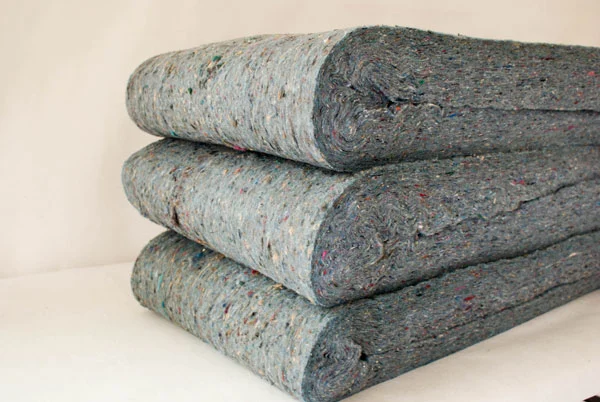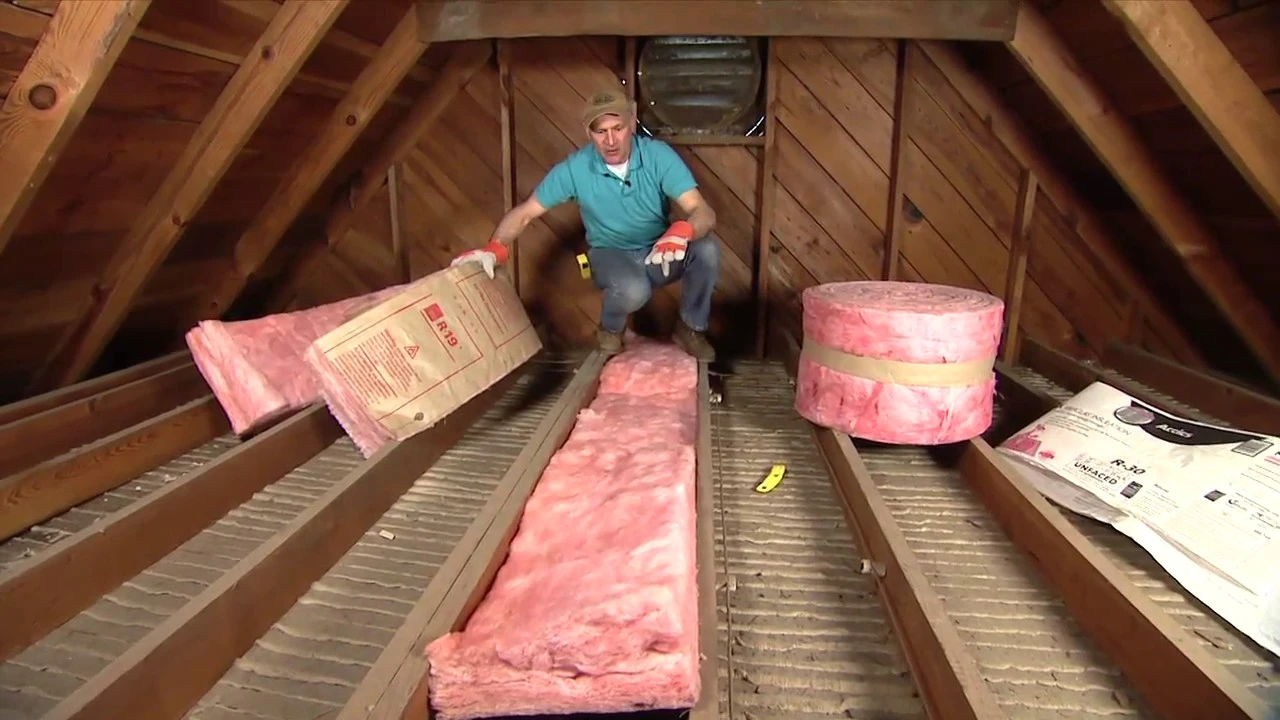
What is the role of soundproofing in insulation
Finding peace can be challenging in today's noisy world. Whether it's the bustling traffic outside or the cacophony of household appliances inside, unwanted noise can disrupt our daily lives. That's where soundproofing insulation comes in handy. In this beginner's guide, we'll explore the basics of soundproofing insulation and how it can help create a quieter, more comfortable environment in your home.
Soundproofing insulation is designed to absorb and dampen sound waves, preventing them from traveling between spaces. It's commonly used in walls, ceilings, and floors to reduce sound transmission from one room to another. By incorporating soundproofing insulation, you can enjoy a quieter living environment and improved acoustic privacy.
By reducing noise pollution, you can create a more peaceful atmosphere where you can relax and unwind without being disturbed by external sounds.
Soundproofing insulation can also improve your home's energy efficiency by helping to regulate temperature and reduce heat loss.
Understanding the Role of Soundproofing: Why It Matters for Your Home
Soundproofing is crucial in creating a peaceful and comfortable living environment in your home. This section will explore why soundproofing matters and how it can benefit you.
Soundproofing is essential to minimize noise pollution and create a quieter indoor environment. External noises from traffic, neighbors, or appliances can be disruptive and affect one's overall well-being. By soundproofing your home, you can enjoy a more peaceful atmosphere where you can relax, concentrate, and sleep without being disturbed by unwanted sounds.
Moreover, soundproofing also enhances privacy by preventing sound from traveling between rooms.
Another critical aspect of soundproofing is its role in improving energy efficiency.
Enhancing Comfort and Privacy with Soundproofing: A Closer Look
Firstly, let's talk about comfort. Soundproofing insulation helps create a quieter indoor environment by reducing noise transmission outside or between rooms. Whether you're trying to sleep, work, or enjoy some quiet time, soundproofing enhances the overall comfort of your home by minimizing noise pollution.
Moreover, soundproofing also plays a crucial role in preserving privacy within your home. By preventing sound from traveling between rooms, soundproofing insulation helps to maintain confidentiality and minimize disruptions. This is particularly important for bedrooms, home offices, and entertainment areas where you want to ensure privacy and avoid disturbing others. With soundproofing, you can enjoy a greater sense of privacy and control over your living space, allowing you to enjoy your home without interference fully.
By incorporating soundproofing solutions into your home design, you can create a more enjoyable living space that meets your comfort, privacy, and tranquility needs. Stay tuned for our upcoming section, where we'll discuss the different types of soundproofing materials and techniques available to homeowners.
Exploring Different Types of Soundproofing Materials for Insulation
Fiberglass Insulation: Fiberglass Insulation is one of the most popular choices for soundproofing. It's made from fine glass fibers and is known for its excellent sound-absorbing properties.
Cellulose Insulation: While primarily used for thermal insulation, cellulose insulation also offers soundproofing benefits. It's environmentally friendly and cost-effective and can be blown or sprayed into walls, attics, and floors to reduce sound transmission.
Acoustic Panels: Acoustic panels are specially designed panels made from materials like foam, fabric, or wood, engineered to effectively absorb sound waves.
Mass-Loaded Vinyl (MLV): Mass-loaded vinyl is a dense, flexible material that adds mass to walls, floors, and ceilings to block sound transmission. It's often used as a barrier layer with other soundproofing materials to enhance their effectiveness.

Stay tuned for our next section to discuss effectively installing soundproofing insulation in your home.
Effective Installation Techniques for Soundproofing Insulation
Sealing Air Gaps: Before installing soundproofing insulation, it's essential to seal any air gaps or cracks in walls, floors, and ceilings. Caulking or weatherstripping prevents sound leakage and ensures the insulation's maximum effectiveness.
Proper Placement: Identify the areas in your home where soundproofing insulation is needed most, such as walls facing noisy streets or shared walls between rooms. Install insulation in these areas to reduce sound transmission and enhance acoustic privacy.
Double Stud Walls: Consider constructing double stud walls for maximum soundproofing effectiveness. This involves building two separate walls with an air gap in between and filling the gap with soundproofing insulation. Double stud walls provide superior sound isolation compared to single stud walls.
Resilient Channels: Before drywall installation, resilience channels are metal strips attached to walls or ceilings. They help to decouple the drywall from the underlying structure, reducing the transmission of sound vibrations. Install resilient channels to improve the performance of your soundproofing insulation.
Green Glue: It can be used with soundproofing insulation to enhance soundproofing performance further.
Floor Underlayment: To soundproof floors, use specialized underlayment materials designed to absorb impact noise and reduce footstep sound transmission. Install underlayment beneath flooring materials such as hardwood, laminate, or tile to create a quieter living environment.
By implementing these installation techniques, you can effectively soundproof your home and enjoy a quieter, more comfortable living space. Experiment with different methods to find the best combination for your needs and budget. Stay tuned for our next section, where we'll provide tips for maintaining and optimizing your soundproofing insulation over time.
Enhancing Energy Efficiency and Saving Costs with Soundproofing
Thermal Insulation Benefits: Apart from reducing noise, soundproofing insulation also provides thermal insulation benefits. Trapping heat during winter and blocking heat penetration in summer helps regulate indoor temperatures, reducing the need for excessive heating or cooling. The insulation helps maintain consistent indoor temperatures, reducing the workload on HVAC systems and extending their lifespan. As a result, you'll save money on maintenance and repair costs while enjoying optimal comfort.
Reduced Energy Waste: Soundproofing insulation creates a barrier that prevents energy loss through walls, floors, and ceilings. Minimizing heat transfer can reduce energy waste and enhance your home's overall energy efficiency.
You'll recoup your investment over time with reduced energy consumption and lower utility bills. Additionally, soundproofing insulation can increase the resale value of your home, providing further financial benefits in the future.
Environmental Impact: Soundproofing insulation contributes to a more sustainable environment by improving energy efficiency and reducing energy consumption.
Overcoming Common Challenges with Soundproofing Insulation
Air Leakage: One of the main challenges with soundproofing insulation is air leakage, which can compromise its effectiveness. Use caulking or weatherstripping to create an airtight seal and prevent sound leakage.
Impact on Room Space: Installing soundproofing insulation can sometimes reduce the usable space in a room, primarily if thick insulation materials are used. To minimize the effect on room space, consider using thinner insulation materials or exploring alternative installation techniques, such as double stud walls or resilient channels.
Moisture Damage: Moisture can damage soundproofing insulation over time, compromising its effectiveness and leading to mold growth or structural issues. To prevent moisture damage, ensure proper ventilation in insulated spaces and use moisture-resistant insulation materials when necessary. Additionally, inspect insulation regularly for signs of moisture accumulation and address any issues promptly.
Cost Constraints: Cost can be a significant concern when undertaking soundproofing insulation projects, especially for larger or more complex spaces. To work within budget constraints, prioritize areas where soundproofing is most needed, such as bedrooms or home offices, and explore cost-effective insulation options. Consider DIY installation for more straightforward projects, or consult a professional to find affordable solutions that meet your needs.
Compatibility with Existing Structures: Retrofitting soundproofing insulation into existing structures can present compatibility challenges, especially if the building has unconventional layouts or materials.
By addressing these common challenges proactively and implementing practical solutions, you can overcome obstacles and achieve successful soundproofing insulation installations in your home or building. If you encounter any difficulties, don't hesitate to seek guidance from experienced professionals for personalized assistance.
Exploring Future Trends in Soundproofing Technology
Advanced Materials: As technology continues to evolve, we can expect to see the development of advanced soundproofing materials with enhanced properties. These materials may offer superior sound absorption, increased durability, and improved environmental sustainability, providing more effective solutions for noise reduction.
Smart Insulation Systems: With the rise of smart home technology, we may see the integration of soundproofing insulation systems with intelligent sensors and controls. These systems could automatically adjust insulation properties based on ambient noise levels, optimizing soundproofing effectiveness in real time.
Nano-Coatings: Nanotechnology holds promise for revolutionizing soundproofing insulation. Nano-coatings can be applied to surfaces to enhance sound absorption and reflection properties. These coatings may offer thin, lightweight solutions that provide excellent soundproofing performance without adding bulk to structures.
Biodegradable Insulation: As sustainability becomes increasingly important, there's growing interest in developing biodegradable soundproofing insulation materials that minimize environmental impact. These materials could offer eco-friendly alternatives to traditional insulation products, appealing to environmentally-conscious consumers.
Integration with Building Design: Future trends in soundproofing technology may focus on seamlessly integrating soundproofing solutions into building design and construction processes. Architects and builders may incorporate soundproofing considerations into building plans from the outset, leading to more efficient and effective soundproofing implementations.
Customized Solutions: With advancements in manufacturing and customization technology, we may see the rise of tailored soundproofing solutions designed to meet the specific needs of individual spaces. These customized solutions could offer optimal soundproofing performance while minimizing material waste and installation time.
FAQs
What is soundproofing insulation?
Ans: Soundproofing insulation is a material designed to reduce or eliminate the transmission of sound waves between spaces. It helps create a quieter indoor environment by absorbing, blocking, or dampening noise.
Where can soundproofing insulation be used?
Ans: Soundproofing insulation can be used in walls, floors, ceilings, and other areas where sound transmission is a concern. It's commonly installed in residential homes, commercial buildings, recording studios, home theaters, and offices.
How does soundproofing insulation work?
Ans: Soundproofing insulation absorbs sound waves and prevents them from traveling through walls, floors, and ceilings. It may also block sound transmission by adding mass or creating barriers between spaces.
Conclusion
By staying abreast of these future trends in soundproofing technology, homeowners and industry professionals can anticipate upcoming innovations and take advantage of cutting-edge solutions to create quieter, more enjoyable living environments. As the field of soundproofing continues to evolve, so
CALL US ANYTIME (720) 619-8255. Innovative advancements are anticipated to transform our perception of sound in residences and structures.
Reach Out To Spray Foam Insulation Westminster
Delivering Quality Insulation Solutions in Westminster, Colorado
Call us today!